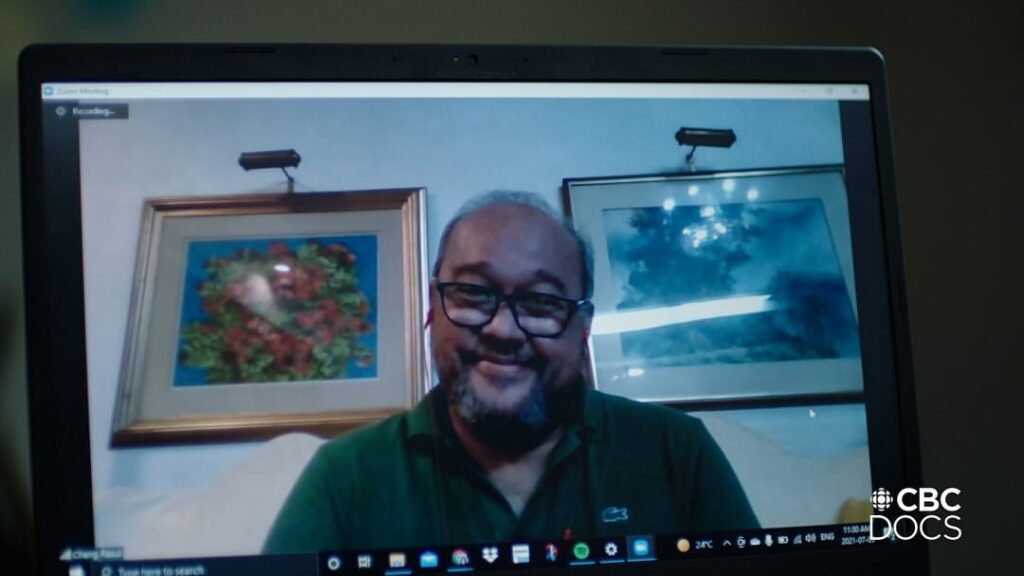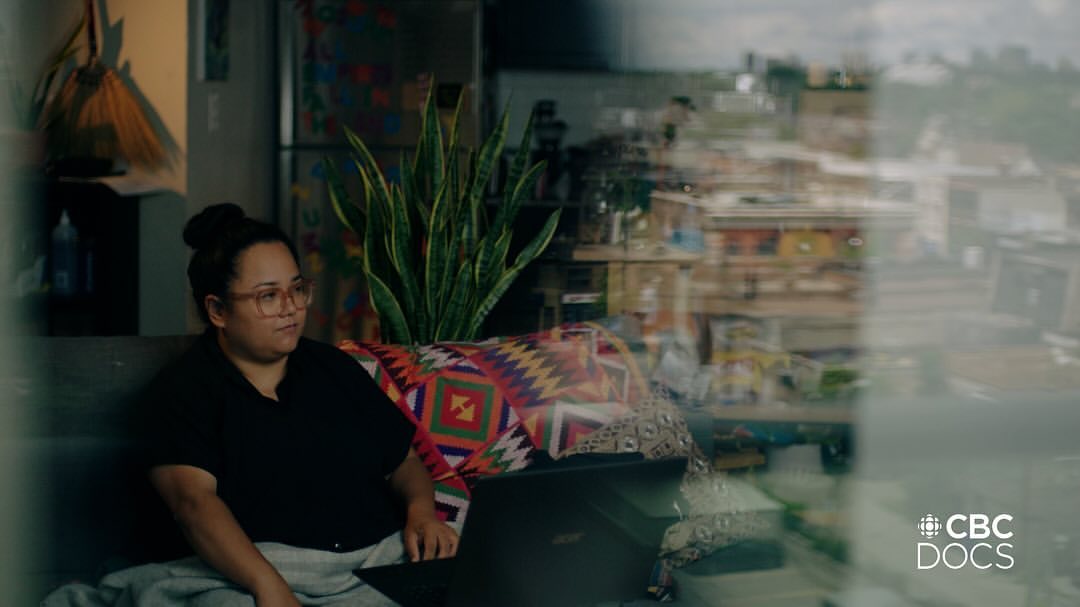Filipina-Canadian comedian Alia Rasul says she fell into filmmaking “by accident” during the pandemic. She thought the humorous stories her dad Amroussi told her about his unusual number of near-death experiences would take shape as, at the most, a podcast.
“What you see is very different from the original [idea],” Rasul says.
Her plans changed when a friend at the CBC suggested the stories could be the basis for a short documentary. Rasul posted a callout on Facebook and found Sura Mallouh, an award-winning filmmaker behind several short documentaries featuring underrepresented voices.
“I remember telling Alia, ‘I don’t have to be involved with this, but I think there’s more to the story beyond these funny little anecdotes,’” Mallouh says. “It started becoming a conversation about, what does it look like for a story to be passed down?”
The final result is 15 Ways My Dad Almost Died, written by Rasul and directed by Mallouh. The multi-format documentary begins with a laugh-out-loud story involving Amroussi, karaoke and early-aughts rock band Hoobastank. It then integrates animation, straight-to-camera interview segments and stand-up bits from Rasul’s comedy sets—but the heart of the film is the multi-day conversation between Rasul and her father.
Over video chat, Rasul (in Toronto) connects with Amroussi (in Manila) as he recounts the many brushes with death he’s had throughout his life. And then, unexpectedly for Rasul, their exchange takes an emotionally wrenching turn. She learns about her dad’s experience during the deadly February 1974 siege of Jolo, a little-known tragedy that destroyed his hometown in the Southern Philippines. Only 16 at the time, he was forced to leave and has never been able to return. Jolo has still not returned to what it was.
“When you’re growing up and you hear your parents talk about, ‘Oh, these are the difficulties I faced in my hometown,’ you take that for granted,” Rasul says. “It’s not okay that he almost stepped on a landmine, actually. What was that about?”

Mallouh adds, “What resonated with me about the story is that we all come from places, especially [communities of colour], where there is history beyond where we’ve landed. I’m ethnically Palestinian so I can relate in some way to this. I didn’t hear my dad’s refugee story until I was an adult, as well.”
As Rasul discovers on camera, details on the incident are scant. There were civilian casualties, but estimates of how many vary widely. The siege began when the Moro National Liberation Front took over the town. The rebel group sought to create an Islamic state separate from the Philippines, ruled by brutal dictator Ferdinand Marcos. Moro is the collective name for indigenous Muslim groups of the Southern Philippines, and they have experienced economic and religious injustice and oppression for centuries. In the film, Amroussi says that when Philippine armed forces swooped in to retake the town, “it was like a war movie.” He remembers bullets flying by and the army point-blank shooting and killing young men they merely suspected of being rebels.
Unsurprisingly, Rasul says hearing about this horror and making the film changed her as an artist. She explains, “There’s a lot of comedy now that’s mining our parents’ stories, and comedy can be very reductive because it’s always trying to be efficient. For me, what changed is the responsibility I feel toward my father’s stories and how that gets carried forward. It’s not easy for me to just be like here’s my dad’s accent, you know? He speaks the way he speaks because it’s a map of where he came from and what he survived.”
Get the
Three from 3
newsletter
Join our global community of sharp, curious thinkers to receive a carefully curated email of the three most important things to read, see and do this week.
Listen and learn.
Tune into Third Culture Leaders, a podcast hosted by our co-founder and publisher, Muraly Srinarayanathas.
Explore how leaders skillfully navigate multiple cultural landscapes, leveraging their diverse backgrounds to drive innovation and change.
Amroussi only saw 15 Ways for the first time when it premiered at Toronto’s Reel Asian Film Festival, which ran in late November and honoured the film with the audience award, but he was part of the conversation throughout the filmmaking process. For example, Rasul and Mallouh sent him the animations that illustrate what he endured to ensure that they were representative of his experiences.
“We were able to respect my dad. We centred [his] agency,” Rasul says. Mallouh adds that making the film was an exercise in “letting the collaboration and the responsibility be the most important part of the process,” and points out that this can be tough, given how documentary filmmaking often works. “It is extractive in nature.” But she goes on to explain that this doesn’t need to be the case. In fact, “It can be a genuinely healing experience.”
Rasul hopes audiences who see the film will research the siege of Jolo. “If that happened, what else happened? I’d love for people to be curious about their parents’ stories…and make a practice of really building a relationship with them.”
“Simply put, it’s a beautiful story about a father-and-daughter relationship,” Mallouh says. “It has big storylines, but, at the core, it’s about a father and daughter connecting and seeing that gentleness that we don’t necessarily see because of stereotypes in our communities.”
15 Ways My Dad Almost Died premiered at the 2024 Reel Asian Film Festival on November 16 and begins streaming on CBC Gem starting December 10. For more thought-provoking stories and exclusive content, subscribe to 3 magazine’s print and digital editions today!
